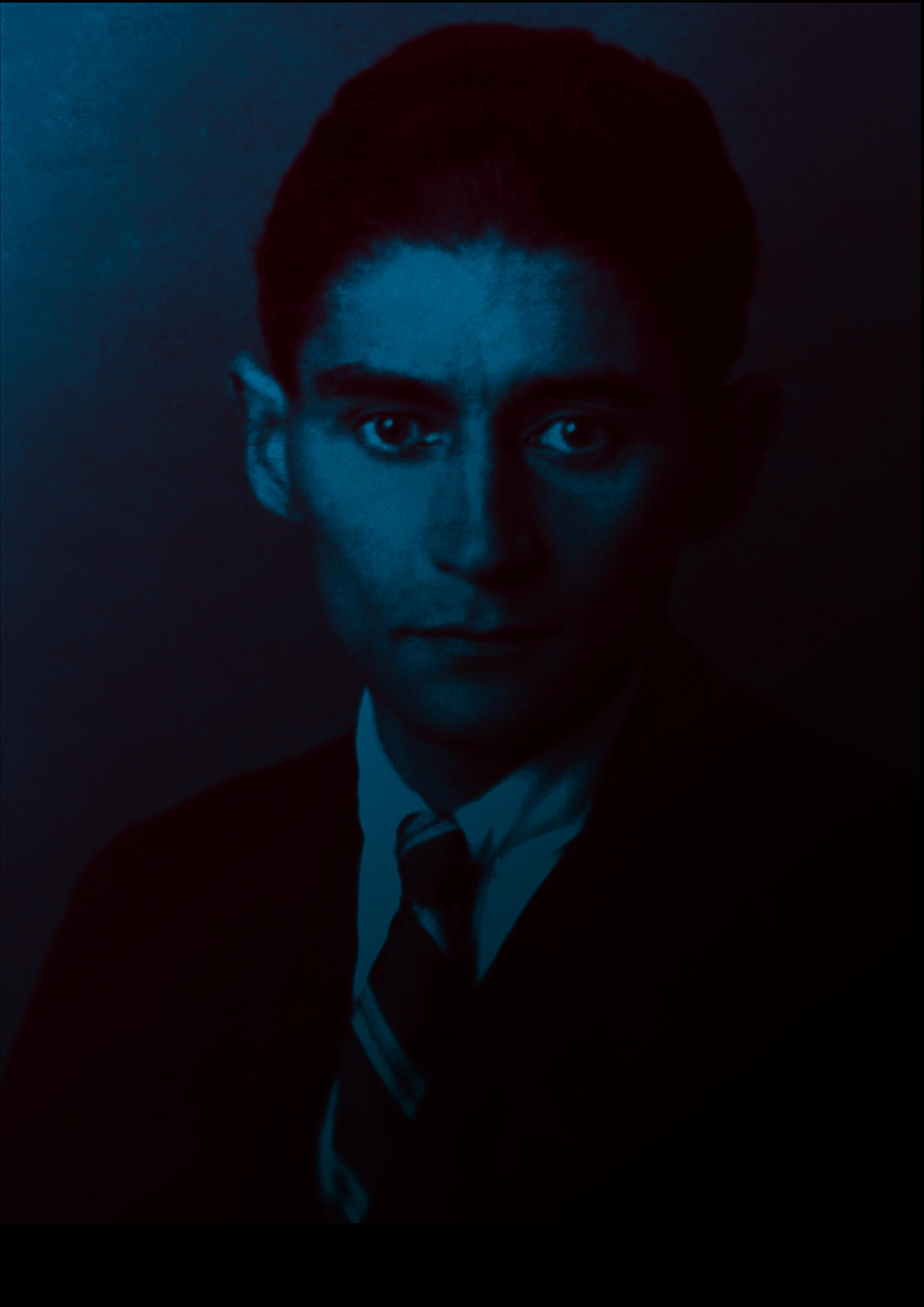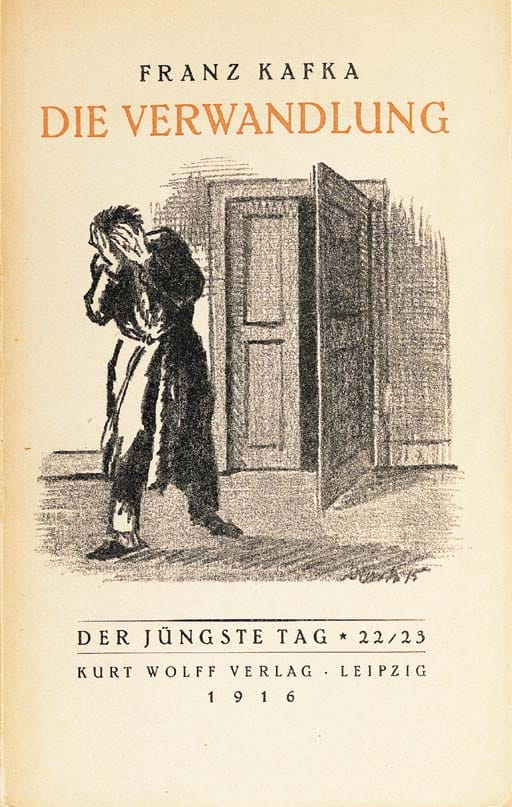Franz Kafka (1883–1924) was born in Prague into a German-speaking Jewish family. His father, a self-made merchant, embodied authority and social ambition, while his son struggled under his dominance and sought refuge in literature. Kafka’s education at a humanistic gymnasium and later in law gave him entry into professional life, yet his employment at an insurance office was experienced as alienating and oppressive.
From early on, Kafka combined an intense need to write with deep ambivalence toward publication. His earliest stories already display recurring motifs—loneliness, failure, metamorphosis, animal imagery—that would become hallmarks of his art. Encouraged by his friend Max Brod, he began publishing in 1912, the year he wrote The Judgment in a single night and, shortly thereafter, The Metamorphosis.
Kafka’s fiction often returns to the theme of the son confronted by an overpowering father. In The Judgment, The Metamorphosis, and The Stoker (later incorporated into the unfinished novel Amerika), paternal authority appears as a force that condemns, expels, or reduces the son. These works form what Brod later called a “trilogy of the sons.”
His personal life was marked by fraught relationships. Engagements to Felice Bauer and later Julie Wohryzek collapsed, and his passionate correspondence with Milena Jesenská, translator of his work into Czech, revealed both intimacy and impossibility. In 1923 he found companionship with Dora Diamant, who cared for him in his final year.
Kafka’s illness—tuberculosis, diagnosed in 1917—progressively shaped his existence. Yet during these years he produced some of his most powerful stories, including In the Penal Colony, A Country Doctor, The Hunger Artist, and the unfinished novels The Trial, The Castle, and Amerika.
Though little recognized in his lifetime, Kafka’s work achieved posthumous prominence thanks to Max Brod, who defied the author’s wish for his manuscripts to be destroyed. In the decades that followed, his writings came to be read as prophetic of modern existence: the sense of alienation, the struggle against impersonal powers, and the unsettling clarity with which he depicted ordinary life turned strange. By the mid-20th century Kafka was acclaimed worldwide, translated into countless languages, and seen as a secret master of German prose.

